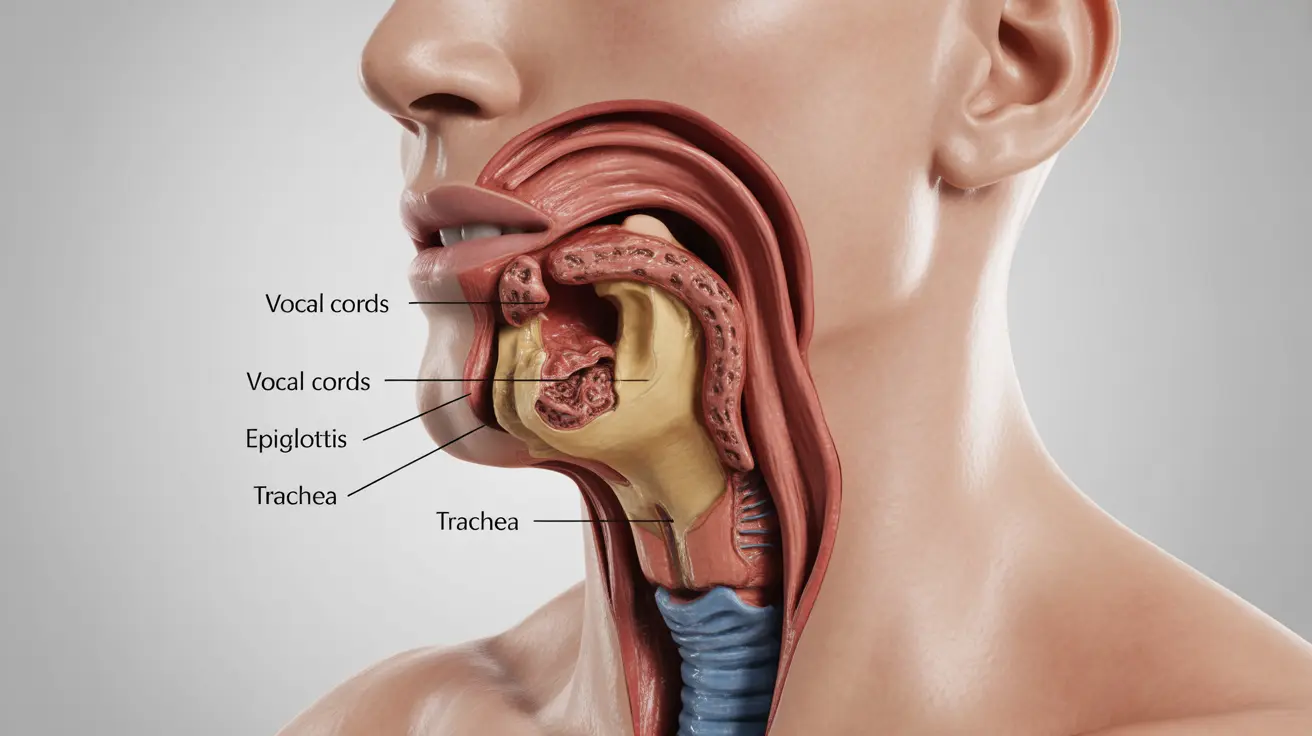When experiencing persistent hoarseness, many people wonder if this common symptom could indicate something more serious, like cancer. While hoarseness often stems from benign causes, understanding when it might signal laryngeal cancer is crucial for early detection and treatment.
This comprehensive guide explores the relationship between hoarseness and cancer, helping you recognize when to seek medical attention and what to expect during the diagnostic process.
Understanding Hoarseness and Its Causes
Hoarseness occurs when there are changes to your voice, making it sound raspy, strained, or different from its normal quality. While most cases result from temporary issues like vocal strain or upper respiratory infections, persistent hoarseness warrants attention.
Common Benign Causes of Hoarseness
Before assuming the worst, it's important to understand that hoarseness commonly results from:
- Viral laryngitis
- Voice overuse
- Acid reflux
- Allergies
- Smoking
- Excessive alcohol consumption
When Hoarseness May Signal Cancer
Certain characteristics of hoarseness should raise concern and prompt medical evaluation. The most significant warning sign is hoarseness that persists for more than three weeks, especially if it occurs alongside other symptoms.
Additional Warning Signs to Watch For
Be particularly vigilant if hoarseness appears with:
- Difficulty or pain when swallowing
- Unexplained weight loss
- Persistent cough
- Neck pain or lumps
- Shortness of breath
- Blood in saliva or phlegm
Risk Factors for Laryngeal Cancer
Understanding your risk factors can help determine how vigilant you should be about persistent hoarseness. Key risk factors include:
- Heavy tobacco use
- Excessive alcohol consumption
- Age over 55
- Male gender
- Occupational exposure to certain chemicals
- History of head and neck radiation
Diagnostic Process for Persistent Hoarseness
When evaluating persistent hoarseness, doctors typically follow a systematic approach to determine its cause. This may include:
Initial Evaluation
- Physical examination
- Medical history review
- Laryngoscopy
- Imaging studies if needed
Treatment Options and Voice Recovery
If laryngeal cancer is diagnosed, various treatment options are available, and many patients can maintain or regain voice function. Treatment approaches may include surgery, radiation therapy, chemotherapy, or a combination of these, depending on the cancer's stage and location.
Frequently Asked Questions
Q: Can hoarseness lasting more than three weeks be an early sign of laryngeal cancer? A: Yes, persistent hoarseness lasting longer than three weeks can be an early warning sign of laryngeal cancer. While other conditions may cause prolonged hoarseness, this duration of symptoms should always prompt medical evaluation.
Q: What other symptoms, besides hoarseness, should prompt me to see a doctor for possible throat cancer? A: Additional concerning symptoms include difficulty swallowing, persistent sore throat, unexplained weight loss, neck lumps, chronic cough, and coughing up blood. Any of these symptoms occurring with hoarseness requires prompt medical attention.
Q: Who is most at risk for laryngeal cancer and should be more concerned about persistent hoarseness? A: People at highest risk include heavy smokers, regular alcohol consumers, those over 55 years old, and individuals with occupational exposure to certain chemicals. Men are also at higher risk than women.
Q: How is laryngeal cancer diagnosed when someone has persistent hoarseness? A: Diagnosis typically begins with a physical examination and detailed medical history, followed by laryngoscopy to visualize the voice box. Additional tests may include imaging studies (CT, MRI) and biopsy if suspicious areas are found.
Q: What treatments are available if hoarseness is caused by laryngeal cancer, and can the voice improve after treatment? A: Treatment options include surgery, radiation therapy, and chemotherapy, often used in combination. Voice improvement potential depends on the cancer's location and extent, but many patients experience good voice outcomes with appropriate therapy and rehabilitation.




